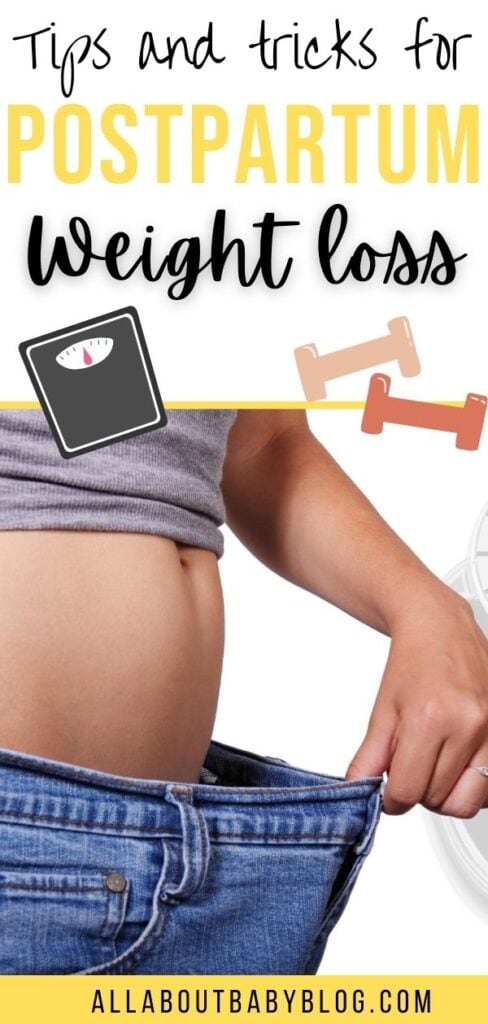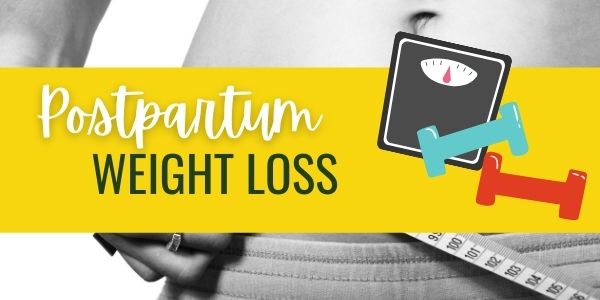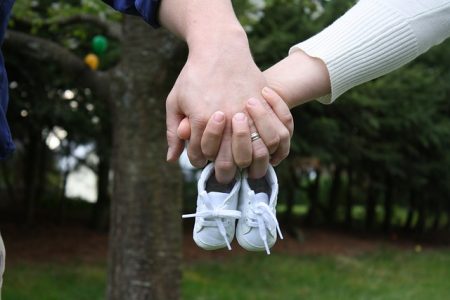Tips and Tricks on Postpartum Weight Loss
How to lose weight after pregnancy
After pregnancy, most mothers wish to lose the weight that they gained. It’s possible for you to do so.
In this post, we’ve provided tips and tricks on postpartum weight loss that can be done safely by exercising, eating healthy, and while still breastfeeding.
There are significant health effects due to weight changes that are experienced during pregnancy.
Postpartum weight loss is beneficial as you will reduce the risk of long term obesity and weight gain.
However, postpartum weight loss needs to be approached carefully as each individual takes different amounts of time to recover after birth.
You may need to wait several weeks after your delivery before starting your weight loss journey- and that’s okay.
Read on below for tips and tricks on postpartum weight loss.
Breastfeed
Breastfeeding isn’t only beneficial for your baby, it also helps the uterus contract and aids in weight loss.
Your baby will be provided with vital nutrients that are important to promote their immune function.
Also, the skin-to-skin contact has an effect on your baby that’s calming.
Breastfeeding was a huge factor for me to get rid of the extra weight from pregnancy.
Don’t forget that your body needs a few extra calories a day while breastfeeding so don’t starve yourself but rather make some healthy changes in your diet.
Don’t skip meals
In order to lose weight you need to have a calorie deficit.
Now, this doesn’t mean that you should starve yourself.
It simply means that you need to consume less calories than the amount that you burn.
This can be achieved by increasing your physical activity and reducing the amount of calories that you eat.
Just avoid restricting your calorie intake severely or skipping meals.
Skipping meals is potentially harmful to both you and your baby as you won’t be getting in the right amount of nutrients.
This might also be interesting:
– Sudden drop in milk supply
– The best apps for stay at home parents
– 27 legit work from home jobs for moms
– Painful sex after baby – what to do
– Personal Story: How I learned to live with my postpartum body
Avoid foods that are highly processed
You can avoid the retention of excess postpartum weight by avoiding foods that are highly processed.
These types of foods include potato chips, soda, fast food, ready-made cakes, and microwave meals.
Instead, eat foods that are protein-rich like eggs, cheese, yoghurt, crackers, hummus, granola bars, lactation cookies, vegetables, peanut butter, nuts and seeds.
Eat foods that are high in fiber
Foods that are rich in fiber promote fat loss.
Fiber rich foods aren’t digested easily by the body.
Fiber absorbs water as it travels through your digestive system, which is good for your bowel health.
The other benefit about fiber is that the body can’t break it down easily, resulting in you feeling fuller for longer.
Fiber-rich foods include beans, peas, lentils, fruits, vegetables, oatmeal, bran cereals, and whole-grain bread.
Exercise
Once you’re ready to start exercising, begin with 20-30 minute walks.
Aim to stay active for this same amount of time on a daily basis.
You can easily do that with your baby in the stroller – the fresh air is good for your baby too.
Taking your baby outside is actually encouraged by most nurses and practitioners since the natural light is known to help with jaundice in newborn babies.
Begin incorporating postpartum exercises that will help your major muscle groups strengthen.
This includes your back and abdominal muscles.
You can then gradually begin to incorporate exercise of a moderate intensity.
If you are a competitive athlete or you exercised vigorously prior to your pregnancy, you can gradually work up to a vigorous intensity.
If you feel pain when doing a certain exercise, stop immediately.
Aim to have a minimum of 150 minutes of moderate intensity aerobic exercise on a weekly basis.
You can choose to divide the 150 minutes into 5 sessions by 30 minutes.
Aerobic Exercise
Aerobic exercise includes cardiovascular activities such as walking, running, bicycling, and rowing.
What is considered moderate intensity?..
Exercising at a moderate intensity is enough to make you start sweating and raise your heart rate, but you can still talk normally.
For example, riding a bike on a surface that’s level or brisk walking.
What is considered vigorous intensity?
Exercising at a vigorous intensity will be difficult for you to talk without having to pause for breath.
If you trained vigorously on a regular basis or are a competitive athlete, you should easily be able to return to your normal routine after your baby is born.
Of course, it’s best to get the approval or your health care professional before doing so as each individual differs.
Timeline for Postpartum Weight Loss
After giving birth you would firstly need time to recover.
So, don’t set high expectations right from the beginning.
It’s best for you to first wait until your postpartum check-up, which happens within 12 weeks of the birth of your baby before you begin your weight loss journey.
During your postpartum check-up the doctor will check for any signs of postpartum depression, blood clots, or infection. You will also be assessed on your recovery from the birth and so will your baby.
You can also discuss with your doctor regarding weight management options.
Final Tips to Shed Those Last Few Pounds
Patience is key when it comes to postpartum weight loss.
No matter how far you are on your weight loss journey, stay patient and stay motivated.
With your baby in the picture, it can be difficult to stick to a strict diet. These final tips will help you stay on track with your weight loss journey:
Team Up
The truth is, you need all the support you can get.
So get your parents and partner involved.
Instead of having dinner and watching TV after, rather go for a walk instead.
You can even choose to make a commitment to doing your post-baby diet together with your partner.
The first step is to get rid of any processed and high-fat foods from your pantry and fridge.
Then, stock up on dairy products, fruits, vegetables, lean meats, fish, poultry, and whole grains.
Don’t Underestimate the Small Things
If you have time to add a bit of extra exercise into your routine, do it.
Every session that you do counts, no matter how short or long.
You will even be surprised at the amount of calories you can burn by simply doing daily mommy activities.
Stay Positive
Focus on your achievements and accomplishments, every milestone is an important one.
You’ve already done much more than the individual that’s done nothing.
So stay positive and motivate yourself. Always remember, fitness means way more than a number on your scale.
In conclusion, weight gain during pregnancy is natural.
It may just be a struggle to get back to your original weight after giving birth.
However, by staying within a weight range that’s healthy before, during, and after your pregnancy will reduce your risk of obesity, health complications, cardiovascular disease, and type 2 diabetes.
By maintaining regular exercise, a healthy diet, and continuing to breastfeed your baby, you will experience postpartum weight loss that is sustainable.
Do you have any other great tips for new moms to lose the baby weight?
What worked for you?
Do you need ways to keep your kid entertained while working from home? Get fun worksheets, coloring pages and more for free when you subscribe to my emails.
And find your tribe of like-minded parents in our Facebook group.









